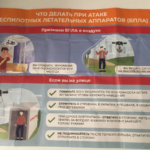Our Goal is Independence!

The date is approaching that leaves not a single Kazan Tatar indifferent – October 2, 1552. Of course, my Tatar compatriot may not think about it or forget about it for many years and trumpet that he/she doesn’t give a damn about it. But suggest him/her to talk about it and try to push ahead with Russian chauvinist narratives in assessing those distant, almost half a millennium ago, events, and you will see that no Tatar will remain indifferent. Thank Allah, most of the Kazan Tatars still have reasons for their exclusive assessment of the capture of Kazan and the conquest of the Kazan Khanate by Tsar Ivan the Terrible of Moscow. They may remain silent just to be polite, or make a joke, but in their hearts they will stick to what they have. It means that there is still hope, it means that not everything is lost!
And what are these historical narratives of Moscow? I read Russian Wikipedia articles, chapters from the school history textbook, ready-made essays on the capture of Kazan and official historiography over again. And everything that I have read can be easily described by the formula “Russia has opened up the way for the Tatars to progress!” It makes me wish to yell, “Bastards, you are liars!”
Everything was quite different from what they write in Great Russian sources. A closer look at the finished, cunningly assembled Russian puzzle reveals inconsistencies and gaps. On top of that, the usual Muscovite model of grab-it-ization of other people’s land becomes apparent.
Let’s think back together and figure it out a little bit.
At first, there was a brazen bandit raid of V. Molotov (M. Litvinov / S. Lavrov / A. Gromyko – option “choose your favorite”) -like Russian diplomacy. Wait, no, I’m wrong! At first, there was an ideological justification for the bandit raid: in 1547 Ivan the Terrible declared himself “Tsar” and equal to the Astrakhan and Kazan khans. Everyone remembers that Muscovite statehood originated in the depths of the Horde, it was part of the Ulus Dzhuchi first as a tributary, and then as an ally. And then one of the appointed administrators “from the locals” declares himself a “co-founder” and demands recognition of his right to the Horde legacy.
This is followed by Muscovite military campaigns, intimidation, forcing the Tatars to capitulate in the mould of “you’d better do it the easy way”. Then a Muscovite fortress is built on the territory of the khanate, at the mouth of the Sviyaga River. Then again it is suggested to divide the Khanate into two parts, to join the right-bank part to Moskovia and to replace the Khan with the Tsar’s viceregent.
We are not going to describe the course of the war, the tactics of the river blockade, the innovation of the Muscovites in the use of artillery and sapper components of the siege, attraction of foreign military engineers – we are not about it. Let us focus on the essence of the Russian model of “gathering lands”. So, at the same time with the “military-technical exercises” Ivan IV fools and bribes part of the Tatar nobility, who believe Moscow and advocate a “peaceful settlement of the issue”. He lures the Chuvash and the Cheremis, and they become cannon fodder for war and get nothing in the end. From the besieged Kazan, those who have lost faith in victory flee, the collaborator Shah-Ali signs the Moscovite “useless scrap of paper” according to which Moscow has only rights and privileges, and Kazan gets duties, obligations and humiliation. Besides, only the Muscovites themselves can interpret this “treaty”.
This can be equated with “Minsk-1” and “Minsk-2” unfolding before our eyes in Ukraine since 2014 and led to you know what. Five hundred years ago the same occurred in Kazan.
“You were given the choice between war and dishonor. You choose dishonor and you will have war” these W. Churchill’s words are universally appropriate for all times and for all treaties involving Russia.
Next was the massacre of 1552. For me, the fall of Kazan means the collapse of the center of regional civilization, disappearance of an original cultural concept, akin to the fall of Carthage or invasion of Rome by barbarians. In assessing an event, you should distance yourself from emotions and feelings, to look at the facts with cold reasoning, but instead I catch myself fantasizing: “what would happen if…”, “what if it could happen that…”.
The Kazan Khanate (even in alliance with the Astrakhan, Siberian and Crimean khanates) could hardly hold out. By that time the Moscow predator had already passed the phase of feudal fragmentation, gained strength and drunk the blood of Russian principalities. It had devoured the nearby Finno-Ugric neighbors, grown like a cancerous tumor, and was craving new prey.
Was there a way out for the Kazan Khanate?
What follows are my historical “musings” of the now popular portal fantasy style, when someone very clever from the XXI century (I do not claim this role) tells Khan Yediger, Mamysh-Berdy or Khan Ali-Akram about the ways to preserve the independence of Tatarstan – to seek alliance with with the Grand Duchy of Lithuania, to confront the Moscow expansion in the already close Livonian War… But these are just sad fantasies. This never happens. It is better to turn to the present day and assess the situation realistically.
There is nothing positive about the history of the Kazan massacre, except that we can draw necessary conclusions from the tragedy. At the beginning of the third decade of the 21st century, Tatarstan possesses sufficient resources for a sovereign state: demographic, territorial, scientific, educational, and cultural. But we should not repeat the experience of unsuccessful development and loss of statehood by the Crimean Khanate in the XVI century – this is the first thing. In contrast to the times of khan Safa Girei and khan Shah-Ali, Tatarstan is now part of the Russian Federation in the position of a “tributary”. In modern politically correct parlance, a donor ally (a plug for all holes). Therefore, the second thing – away from Russia! It only sucks and uses our resources. In support of this, here is a quote from Doctor of History Iskander Ayazovich Gilyazov: “… the Tatar population has grown insignificantly, while the number of ethnic Russians has increased ten- and hundred- fold, given that at the time of the conquest the population of the Kazan Khanate was almost equal to that of Moscovia. That is, part of the ethnos should be destroyed in various ways, and part should be deprived of the memory, culture and language! No Tatar – no Tatar problem! What is more?
In spite of everything, Tatarstan today has managed to preserve its cultural identity, mental identity, and even the historical memory of the Kazan Khanate as the basis of the future Tatar renaissance and acquisition of true state sovereignty. But there is no room for complacency… I wanted to write about achievements, but everything around us is not our achievement. This is what the Russian lord has given us, Charitably allowed us to have! Or they could have taken it away and flogged us, figuratively speaking. Remember this, compatriots.


2 Comments